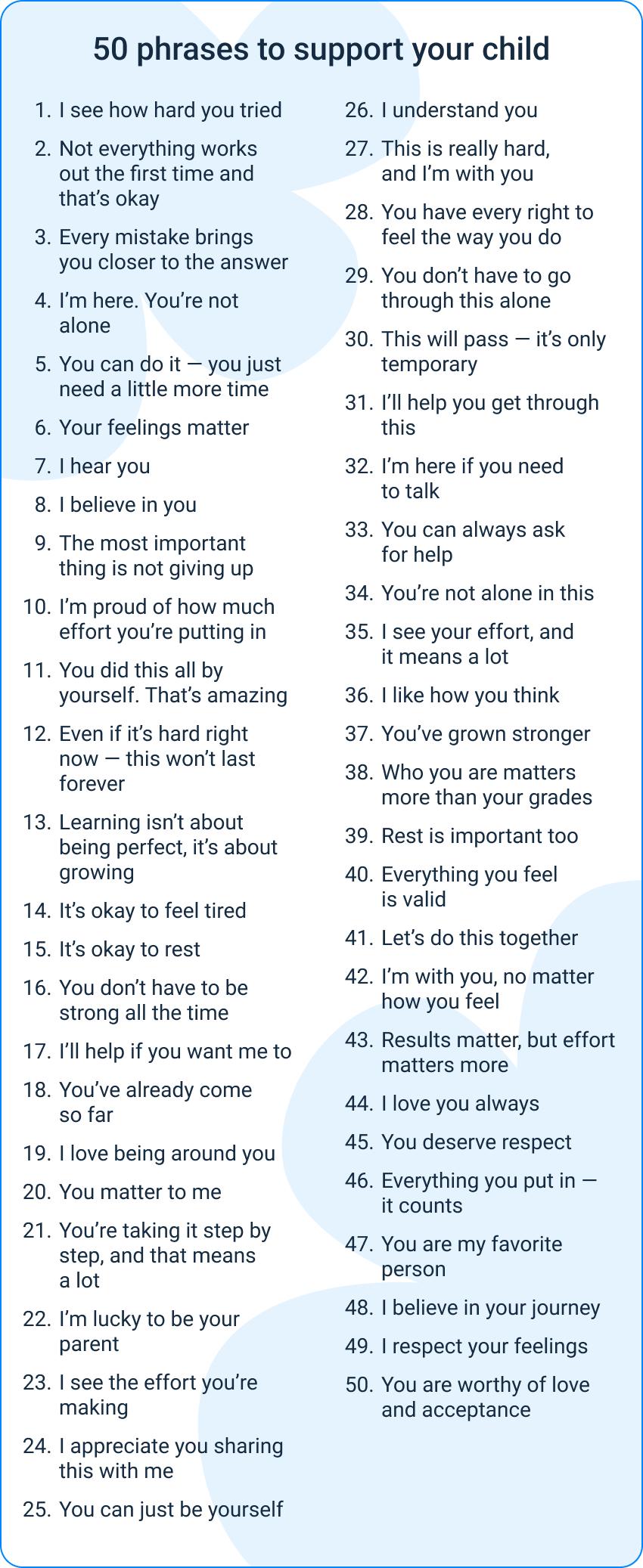50 Phrases Every Child Needs to Hear

When a child is struggling, it’s often a parent’s words that help them stay steady.
A teen might not verbally express that they need support. They might shrug, mumble, or seem aloof, but that doesn’t mean your words don’t matter. In fact, it’s in those very moments that they matter the most.
How Supportive Words Help a Child
Words of encouragement help a child feel less alone. They show that their emotions are valid and that they are accepted even when they’ve made a mistake, feel upset, or want to shut down.
A study from Hong Kong found that teens who regularly receive warm emotional support from parents experience less anxiety, and report fewer health complaints like fatigue or pain.
Why? Because they feel, deep down: “I can get through this,” even when things are hard. A child who feels supported learns better, communicates with more confidence, and handles change with more calm. And it doesn’t take grand gestures—just the steady presence of a calm, supportive adult.
Words That Ground, Not Judge
It’s not just about praise. It’s also about giving your child something solid to lean on.
Saying “good job” can feel like checking a box. Instead, tell them what exactly went well. Say what made you proud.
That way, your child doesn’t just hear evaluation—they feel real connection and support.
Words aren’t magic, but they do have power, when they’re spoken regularly. Let your child know that even when they’re sad, scared, or make mistakes, you’re there with interest, attention, and care.
References:
- Parental emotional support, self‑efficacy, and mental health problems in adolescents, Frontiers in Psychiatry, 2024
- Why Developing Emotional Security in Your Children Matters, The Raineys, 2022
Проверьте электронный ящик




















